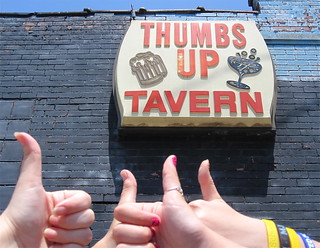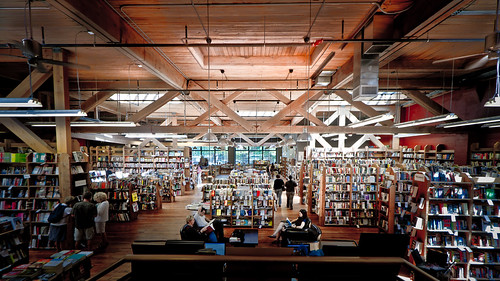I think I'm going to declare the year 2017 my year of reading voraciously. At the beginning of the year, I set a goal to read 45 books for the year. This was a little lower than the previous year's goal because for the first time in years *sob* I didn't hit my Goodreads goal in 2016. But last week I actually hit my goal already. Woot!
Part of the reason I'm reading so much, beyond the fact that it's my favorite thing to do, is that, as many of you know, I've cut out so much of my online and smartphone time. Those gaps created have been filled in with more reading time--a happy switch I have to say. But that's left me with so many books that I want to tell you about and not enough time to blog fully about them all, lol.
So today I thought I'd give a quick rundown of what I've been reading lately and loving.
The Kitchen Counter Cooking School by Kathleen Flinn
I heard about this one first on the Modern Mrs. Darcy podcast and I knew I had to have it. I love a foodie book, but I was intrigued by the premise of this one--taking a group of women who didn't feel confident in the kitchen and showing them simple ways to cook without complicated recipes and a lot of fuss. Now, I consider myself a pretty experienced cook since it's a hobby of mine, but I still learned a ton of things in this book. For one, I've been holding my chef's knife all wrong! All this time. I had no idea. But beyond the cooking tips, I loved hearing about each woman's individual story and experiences. I listened to this one in audio and then had to buy the paperback too because I wanted all the little tips and simple recipes given.
About the book:
The author of the New York Times bestseller The Sharper Your Knife, The Less You Cry tells the inspiring story of how she helped nine others find their inner cook.
After graduating from Le Cordon Bleu in Paris, writer Kathleen Flinn returned with no idea what to do next, until one day at a supermarket she watched a woman loading her cart with ultraprocessed foods. Flinn's "chefternal" instinct kicked in: she persuaded the stranger to reload with fresh foods, offering her simple recipes for healthy, easy meals. The Kitchen Counter Cooking School includes practical, healthy tips that boost readers' culinary self-confidence, and strategies to get the most from their grocery dollar, and simple recipes that get readers cooking.
Someday, Someday, Maybe by Lauren Graham
Yes, by that Lauren Graham of Gilmore GIrls fame. This is a fictional story about an actress in New York trying to make it in the nineties. You can definitely hear Graham's voice in the story and you get the sense that though it's a fictional tale, she's using a lot of personal experiences to flavor it. I thought that added a level of authenticity I'm not sure I've read in other books with actress heroines. This one was very upbeat and fun. Sometimes I wanted to yell at the character because her self-esteem is so shaky at times and I just want to give her a rah-rah, don't-sell-yourself-short talk, but she's very likable and endearing. There's a slight romance thread in the book but don't expect a spelled out ending for the romance. At the end, it was one that I kept turning the pages because I was hoping for an epilogue. Sadly, no epilogue, but the journey was worth it. A breezy read.
About the book:
From Lauren Graham, the beloved star of Gilmore Girls and Parenthood, comes a witty, charming, and hilariously relatable debut novel about a struggling young actress trying to get ahead―and keep it together―in New York City.
It’s January 1995, and Franny Banks has just six months left of the three-year deadline she set for herself when she came to New York, dreaming of Broadway and doing “important” work. But all she has to show for her efforts so far is a part in an ad for ugly Christmas sweaters, and a gig waiting tables at a comedy club. Her roommates―her best friend Jane, and Dan, an aspiring sci-fi writer―are supportive, yet Franny knows a two-person fan club doesn’t exactly count as success. Everyone tells her she needs a backup plan, and though she can almost picture moving back home and settling down with her perfectly nice ex-boyfriend, she’s not ready to give up on her goal of having a career like her idols Diane Keaton and Meryl Streep. Not just yet. But while she dreams of filling their shoes, in the meantime, she’d happily settle for a speaking part in almost anything—and finding a hair product combination that works.
Everything is riding on the upcoming showcase for her acting class, where she’ll finally have a chance to perform for people who could actually hire her. And she can’t let herself be distracted by James Franklin, a notorious flirt and the most successful actor in her class, even though he’s suddenly started paying attention. Meanwhile, her bank account is rapidly dwindling, her father wants her to come home, and her agent doesn’t return her calls. But for some reason, she keeps believing that she just might get what she came for.
Someday, Someday, Maybe is a story about hopes and dreams, being young in a city, and wanting something deeply, madly, desperately. It’s about finding love, finding yourself, and perhaps most difficult of all in New York City, finding an acting job.
Around the Writer's Block by Rosanne Bane
I learned about this one in an RWA workshop and immediately had to go out and buy it. I suffer from writer's block at some point in almost every book and it's a huge source of stress for me. This book breaks it down and gives a simple system for setting up your brain for success so that you avoid burnout and blocks. SO HELPFUL. I've read a lot of books and articles on this topic, but this one really resonated with me. I loved all the science and explanations, and I found the system she suggests very intuitive. Highly recommended to my fellow writers.
About the book:
Discover the tricks that your brain uses to keep you from writing—and how to beat them.
Do you:
Want to write, but find it impossible to get started?
Keep your schedules so full that you don’t have any time to write?
Wait until the last minute to write, even though you know you could do a better job if you gave yourself more time?
Suddenly remember ten other things that you need to do whenever you sit down to write?
Sabotage your own best efforts with lost files, missed deadlines, or excessive self-criticism?
The good news is that you’re not lazy, undisciplined, or lacking in willpower, talent or ambition. You just need to learn what’s going on inside your brain, and harness the power of brain science to beat resistance and develop a productive writing habit.
In Around the Writer’s Block, Rosanne Bane-- a creativity coach and writing teacher for more than 20 years-- uses the most recent breakthroughs in brain science to help us understand, in simple, clear language, where writing resistance comes from: a fight-or-flight response hard-wired into our brain, which can make us desperate to flee the sources of our anxieties by any means possible.
Bane’s three-part plan, which has improved the productivity of thousands of writers, helps you develop new reliable writing habits, rewire the brain’s responses to the anxiety of writing, and turn writing from a source of stress and anxiety into one of joy and personal growth.
Hamlet's Blackberry by William Powers
Yes, I'm still obsessively reading books about digital life and the effects devices have on us. : ) But I'm sharing this one because I think it's one of the most readable ones yet and focuses on the philosophical side instead of the hard science side. Powers lays out the problems and struggles so many of us are having with focusing and feeling constantly busy in the digital age, then he pulls seven philosophers from history to examine how they handled radical shifts in technology. (Because we're not the first generation to have to deal with that kind of radical shift--think of when written language was developed, when the printing press was created, when radio and TV were invented). It was really interesting seeing how insights from philosophers of the past absolutely can be useful today in dealing with our own technology revolution. Then at the end, Powers gives practical idea for how we can better live in our digital worlds without losing our minds. (Also, even though this book was published 7 years ago, it's still just as relevant today.)
About the book:
A crisp, passionately argued answer to the question that everyone who’s grown dependent on digital devices is asking: Where’s the rest of my life? Hamlet’s BlackBerry challenges the widely held assumption that the more we connect through technology, the better. It’s time to strike a new balance, William Powers argues, and discover why it's also important to disconnect. Part memoir, part intellectual journey, the book draws on the technological past and great thinkers such as Shakespeare and Thoreau. “Connectedness” has been considered from an organizational and economic standpoint—from Here Comes Everybody to Wikinomics—but Powers examines it on a deep interpersonal, psychological, and emotional level. Readers of Malcolm Gladwell’s The Tipping Point and Outliers will relish Hamlet’s BlackBerry.
That's all I've got for you today. What have you been reading?








